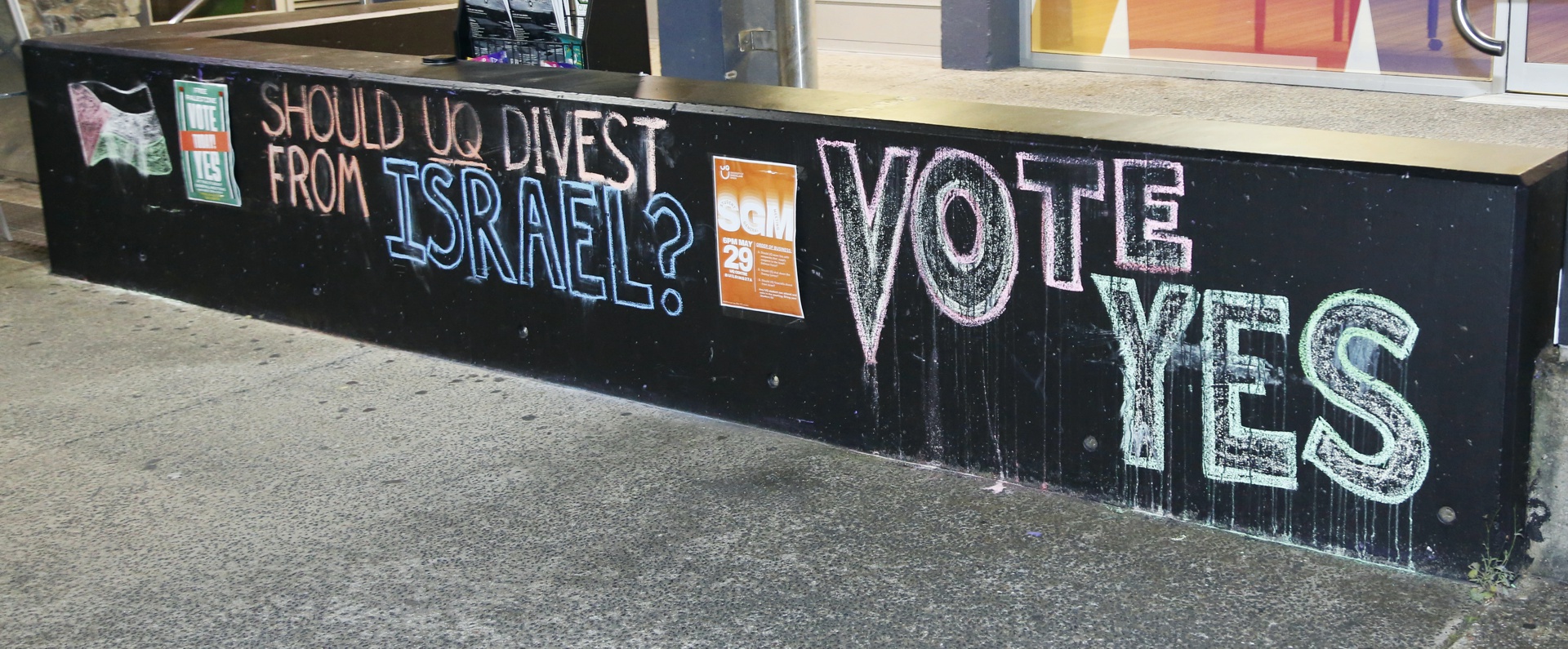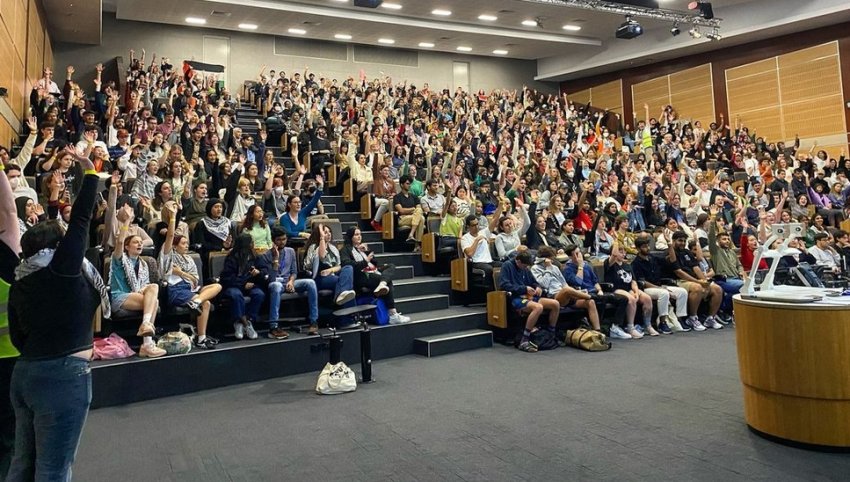
Students at the University of Queensland (UQ) voted overwhelmingly to cut ties with weapons manufacturers and to divest from Israel at a 1500-strong meeting on May 29.
The Student General Meeting (SGM) was initiated by activists at the UQ Gaza Solidarity Encampment.
There have only been three other SGMs in UQ’s history. One was in 2019 against the racist Ramsay Centre. Another in 1974 demanded Indigenous studies be added to the curriculum.
Usually, SGMs are called by the UQ Union (UQU) student council. This was the first time an SGM was called via petitioning 2% of the student population.
Petitioning for the SGM started on May 8. Within 12 hours, organisers had already collected the 1000 signatures required to call the meeting. In total, 1400 signatures were submitted to UQU, 1027 of which were validated.
The meeting was scheduled for May 29 at 6pm. According to the UQU constitution, 300 students needed to attend to make the vote official.
Initially, organisers were worried about their ability to mobilise that many students. The meeting took place after classes had ended and during a study break, and only three days before exams started.
On the day there were further complications.
An anonymous bomb threat was called in against the Great Court at 4.40pm, which forced an evacuation of the surrounding buildings and the solidarity encampment.
Students in Colleges report being advised not to go on to the campus. Luckily, the UQ Centre, where the meeting was to be held, was unaffected.
Union officials started registering students at 5.15pm.
The lecture theatre at the UQ Centre has a capacity of 500. As the line for registration grew, it quickly became apparent that far more than 500 students were waiting to get in.
Inside the lecture hall, union officials scrambled to find a way to ensure all students could participate. They were not expecting, nor prepared for, a turn-out of this size.
Three emergency overflow rooms were booked, and a Zoom link set up. This, however, did not prove enough.
Hundreds of students were left outside the UQ Centre, demanding they be allowed to vote.
When the meeting started, organisers moved a procedural motion to allow students outside to vote. The motion passed unanimously.
A tiny group of around 10 Zionists, including some who were not students, turned up to oppose the vote.
The motions considered by the meeting were: Should UQ sever ties with companies that supply the Israeli Defence Forces?; Should UQ shut down the Boeing Centre? and; Should UQ financially divest from Israel?
Debate on the three motions began at 7pm.
Speakers supporting the motions spoke about the need for students to stand with Palestinian people facing Israeli imposed genocide and apartheid. The university was also criticised for its links with weapons companies, such as Boeing. Only one speaker was willing to speak against the motion.
The three motions were voted on together. They were passed almost unanimously, with only a small group of students voting against.
The mood inside the UQ Centre was electric when the motions passed, with chants of “Free free Palestine” erupting.
At the end of the meeting, students swarmed on to the street and marched towards the administration building.
It was then that the scale of the mobilisation became apparent. The crowd numbered 1500. Activists said this was the largest pro-Palestine demonstration ever on an Australian university campus.
The meeting's success is a massive victory for the Gaza solidarity encampment at UQ.
The encampment has been slandered by the Murdoch media, which has tried to characterise it as violent terrorist supporters, isolated from the wider student population.
This vote is a refutation of this line and proves that Palestinian activists enjoy widespread support among the student body.
It is also a testament to the work of encampment organisers who organised an active campaign of postering, leafleting and phone banking in the days leading up to the SGM.
The vote at UQ comes in the context of increasing student outrage at Israel’s genocidal war on Gaza.
The numerous encampments at universities across the country are ramping up the pressure on the Anthony Albanese government to divest from and sanction Israel.
Student activists vow that this is only the beginning of mass student movement for justice for the Palestinian people.
voteyes29-5-24byalexbainbridge-web.jpg
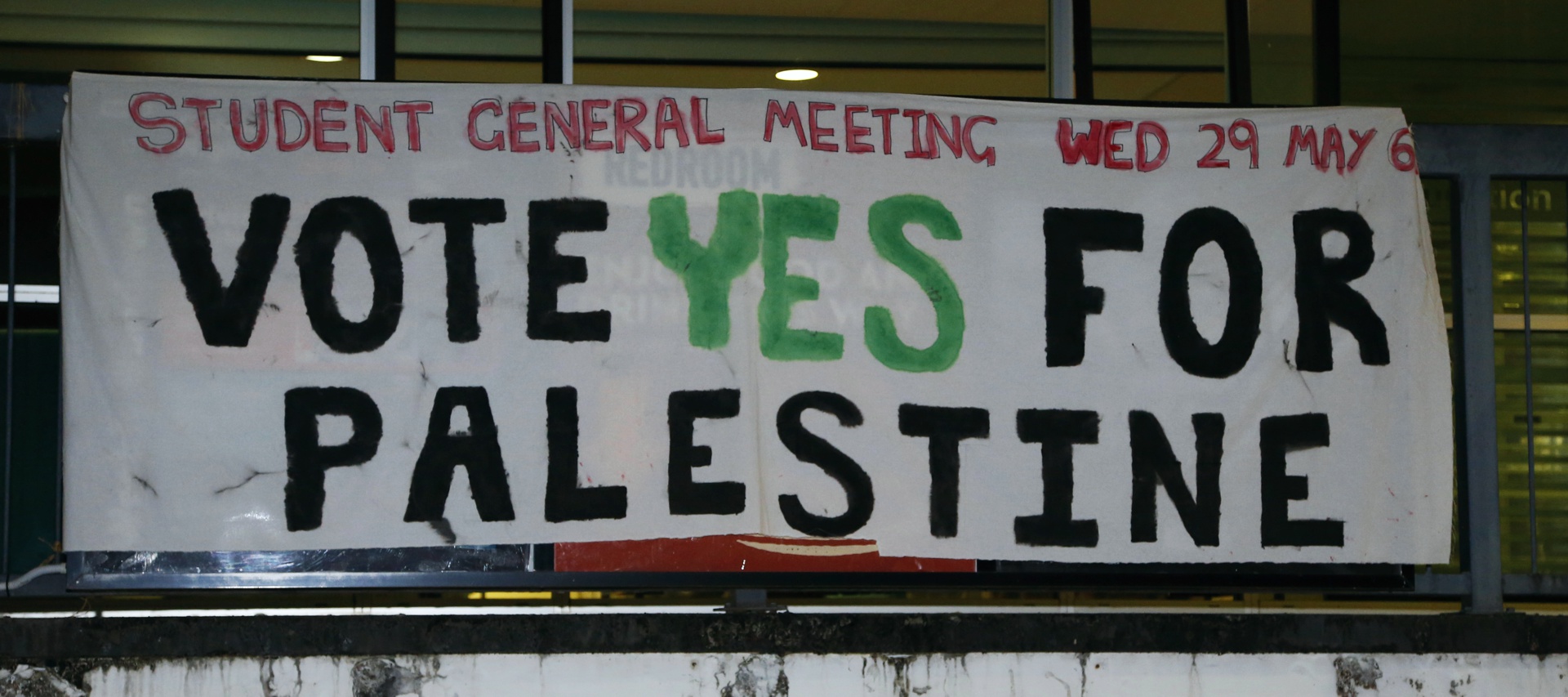
sgmqueues29-5-24byalexbainbridge-web.jpg
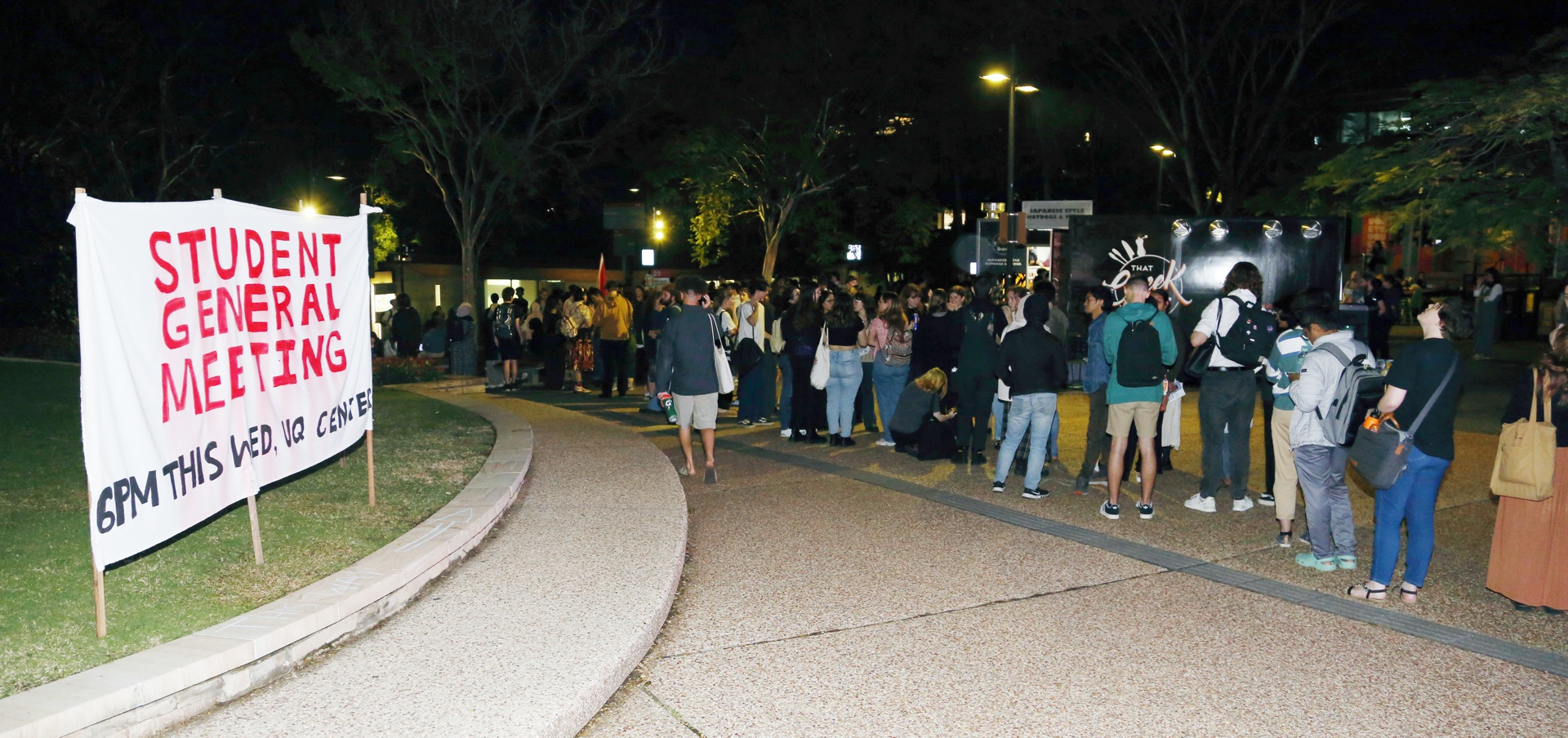
morequeues29-5-24byalexbainbridge-web.jpg
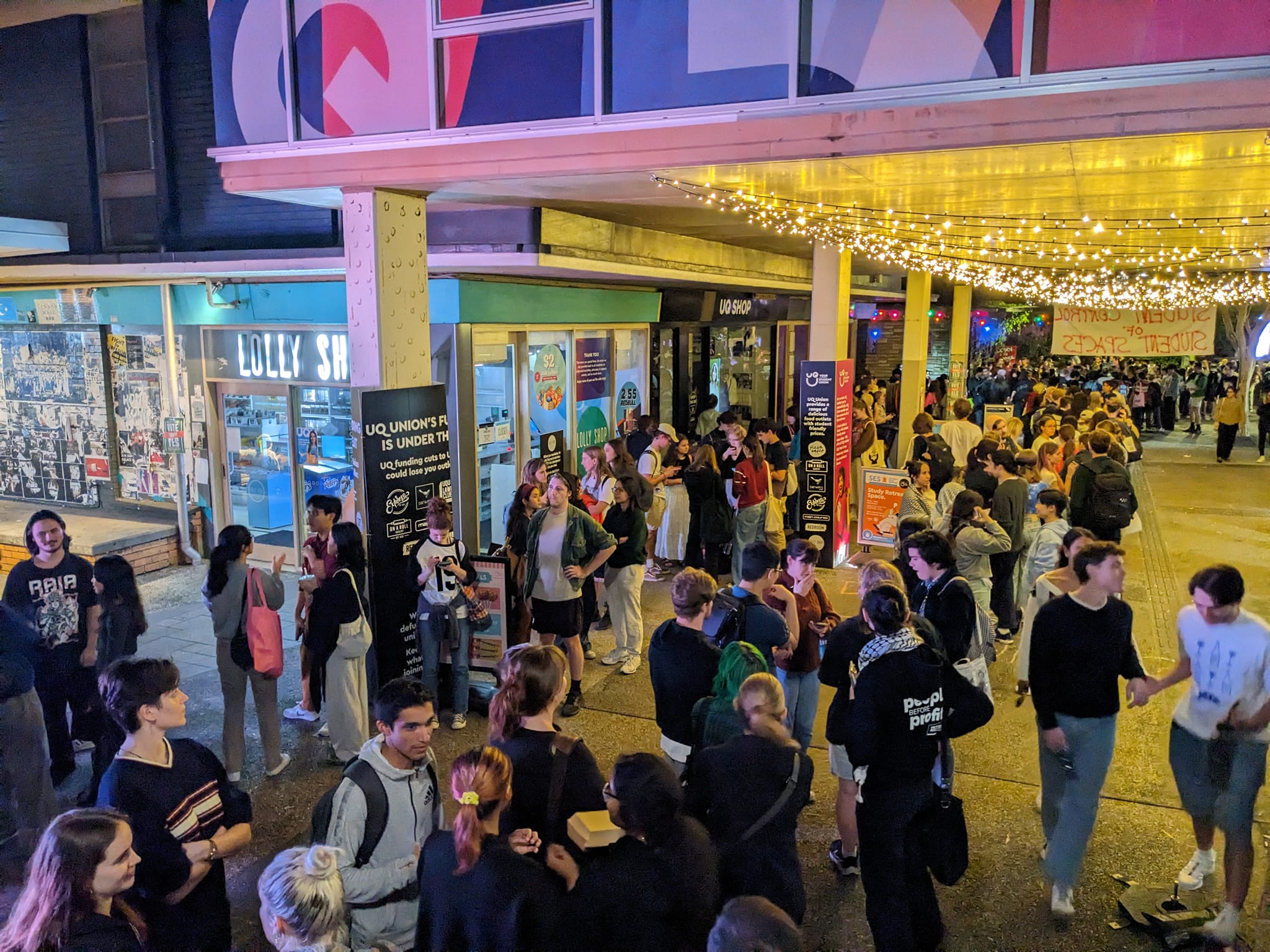
morevoteyes29-5-24byalexbainbridge-web.jpg
